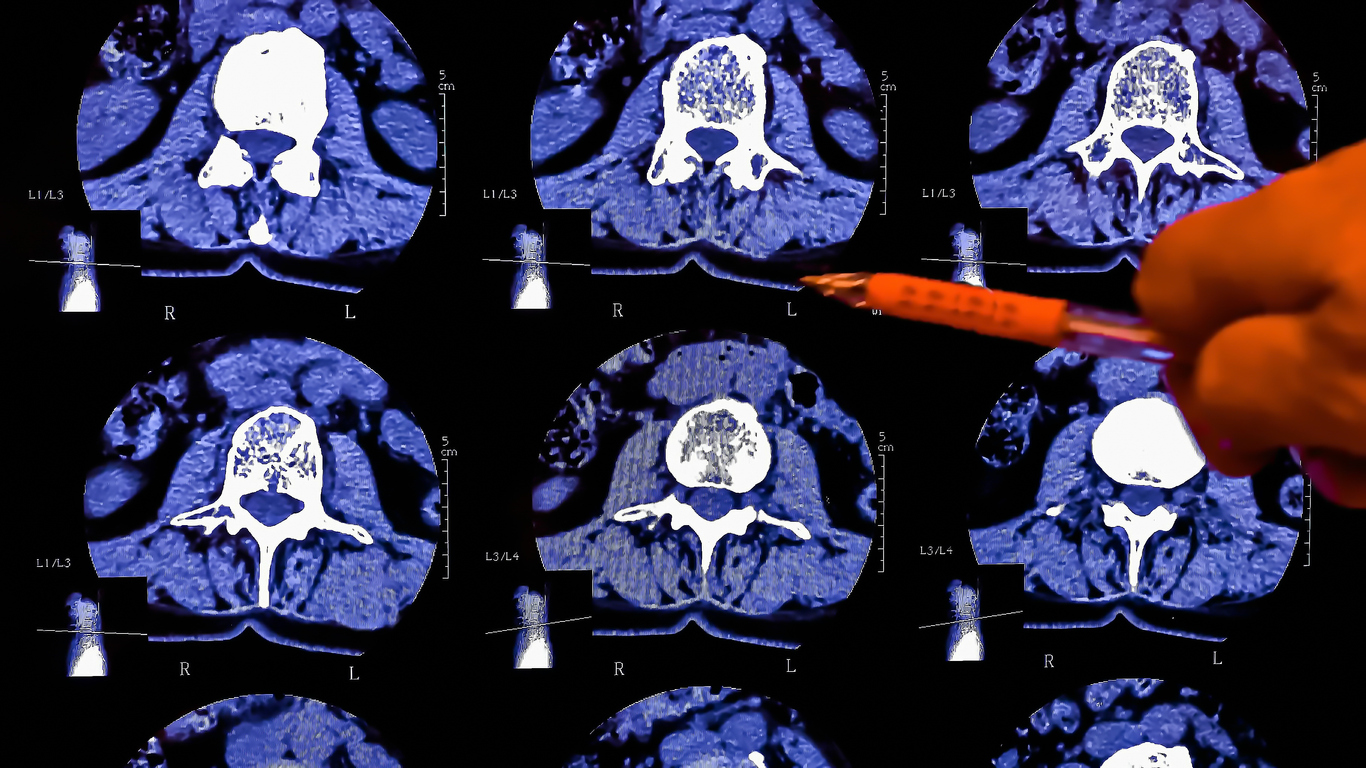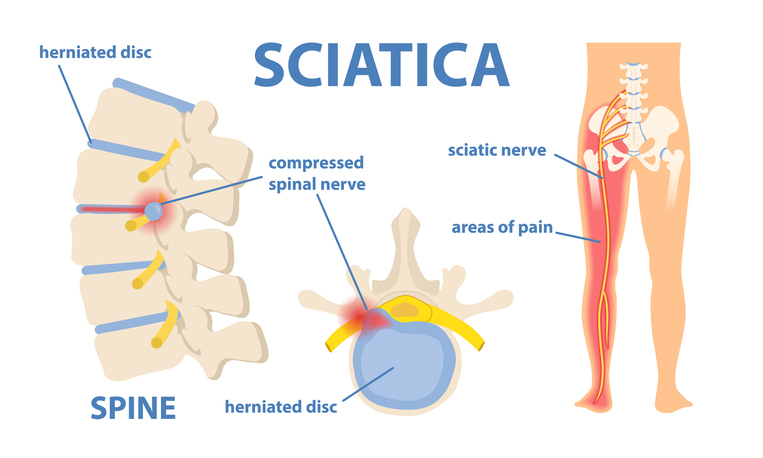Pain
Degenerative Disc Disease and Sciatica

Degenerative disc disease is a condition in which the discs, located between the individual vertebra, deteriorates and break down. The discs no longer provide support between the vertebrae, which leads to pain and other symptoms.
What is Sciatica?
The sciatic nerve is the largest nerve in the body. It begins in the lower back, runs down to the buttocks, splits into two, and then continues down either leg to the foot. Sciatica occurs when part of the sciatic nerve is compressed, typically in the lower back. It generally, only affects one side of the body, but it can affect both. The pain can be severe and debilitating for some and yet others may just feel an annoying, infrequent pain.
How does Degenerative Disc Disease related to Sciatica?
If degenerative disc disease causes a disc to impinging on a nerve root in the lower back, it can cause sciatica. Degenerative disc disease is not the only possible cause of sciatica. Any spinal condition which can cause impingement of the sciatic nerve can cause sciatica.
Symptoms of Sciatica
- Pain: either abrupt or gradual.
- Dull, burning or sharp sensation in the leg.
- Shocks or shooting pain which travels down the leg.
- Tingling or numbness of the leg.
- Difficulty and pain with sitting.
- Difficulty when trying to stand.
- Coughing and sneezing may increases the pain.
- Hip pain.
- Lower back pain.
If an individual experiences symptoms, such as: trunk or leg weakness, or bladder / bowel incontinence, please seek emergency treatment immediately. These are signs of a condition known as cauda equina syndrome and it requires immediate medical treatment.
Sciatica Treatment
- Ice or Heat
- Over-the-Counter Medications
- Anti-Inflammatory Medications
- Muscle Relaxant Medications
- Epidural Steroid Injections
- Physical Therapy / Exercises
- Acupuncture
- Massage Therapy
- Cognitive Behavioral Therapy
Degenerative disk disease is a risk factor for developing sciatica. As such, it’s important for individuals to know the symptoms of sciatica and consult a doctor for treatment as soon as possible.

















